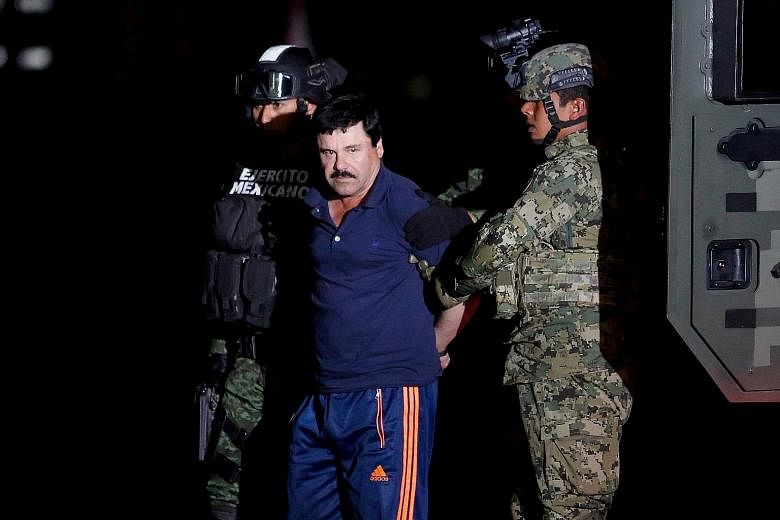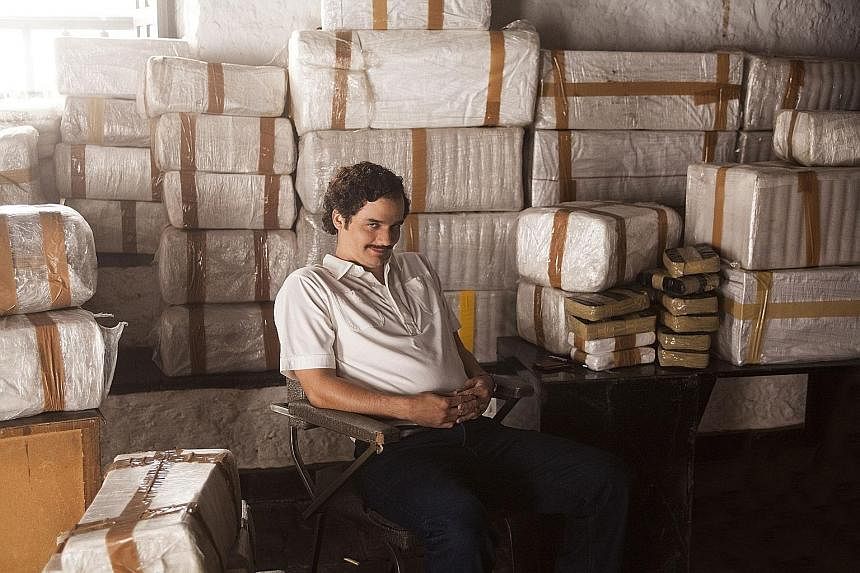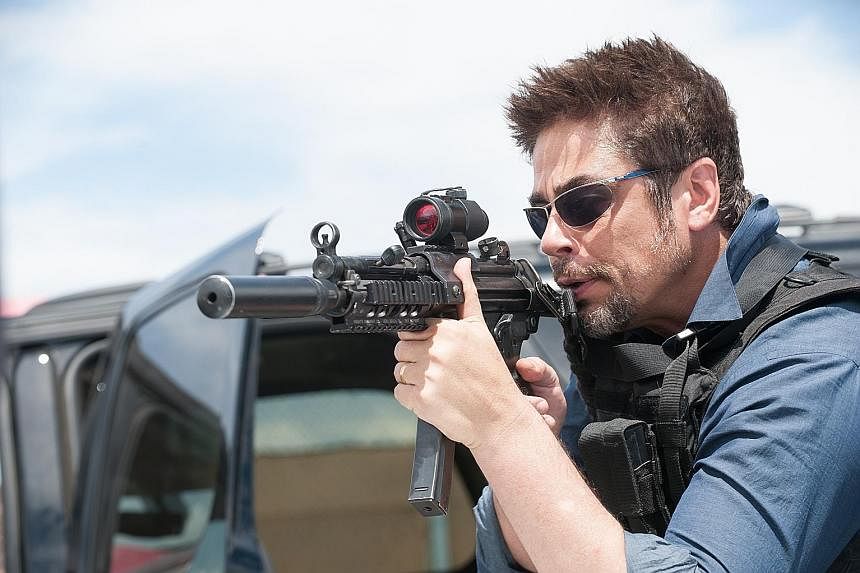MEXICO CITY • It was a television executive's nightmare: Not only was someone threatening to sue over a TV series, but also that person was reputedly the world's biggest drug trafficker and the head of a cartel behind a long string of mass executions and torture videos.
The first sign of trouble came in May, after Netflix and Univision released a trailer for their series El Chapo, based on imprisoned Mexican kingpin Joaquin Guzman.
The trafficker's lawyer Andres Granados announced through various media outlets that he would go to court if Guzman's name and story were used without payment. "(He) has not died. He is not a character in the public domain. He is alive. He has to grant them permission," Mr Granados told a local radio station.
The producers are in a predicament. If they go ahead with the series, due next year, they could face a legal battle - and should Guzman lose, he might seek retribution out of court. But if they negotiate with him, would they be cooperating with organised crime? The lawyer suggested he could help improve the series by giving details that no journalist had yet dug up. But might that mean acting as a propaganda instrument for a crime boss?
Their quandary reflects a larger dilemma in the growing world of narco fiction.
Dramatic portrayals of Mexican crime kings, which began as zany B-grade movies, have evolved into wildly popular soap operas, best-selling novels and major Hollywood productions. They are part of a wider narco culture, ranging from pop-music ballads to fashion trends.
Yet, out in the real world, more than 80,000 Mexicans were killed by cartel-related violence from 2007 to 2014, according to a government count. May was the most murderous month in Mexico in almost four years.
Last year, the drug war made its big break into the mainstream United States media market with the release of the Oscar-nominated movie Sicario, the Netflix series Narcos and Don Winslow's best-selling novel The Cartel.
All have been commercial and critical hits, despite protests by the mayor of Juarez against Sicario for portraying his city in a bad light. The success of Narcos, which paints a largely true picture of Colombian kingpin Pablo Escobar, paved the way for Netflix to work on production of El Chapo.
Mexican politicians slam narco culture for glamorising, and even feeding, the blood-soaked trade. Writers, producers and singers retort that they are merely documenting reality. But increasingly, the line between life and art is blurring.
It's easy to see why everyone wants to tell Guzman's tale. According to indictments, he smuggled billions of dollars in drugs into the US aboard jet airliners, fishing boats and submarines. He escaped from two top-security prisons - the second one through a long tunnel riding a motorcycle on rails. When Mexican marines caught him in January, he almost escaped yet again by fleeing into a sewer system.
But just because it makes for a good story, is it one that Netflix and others should be telling?
There's certainly a risk of glorifying narco life; I have interviewed several gang members, and they often say they watch narco soaps and movies. I even went into a prison at the border city of Nuevo Laredo to find that a crime boss being held there had a life-size photo of Al Pacino from Scarface on his wall.
But it's harder to say whether narco fiction contributes to the violence in Mexico - millions of people watch these same films and don't go around decapitating victims on video.
Still, producers and writers of narco fiction do struggle with the issue.
"Oh, do I wrestle with that," Winslow told me last year. "At the end of the day, I tilt towards the side of, 'By informing people, we are doing good.' But in the day-by-day writing of some of these things, I wonder, 'Am I tripping across a line? And am I simply doing a pornography of violence? Is this just voyeuristic?' "
It's a question that Netflix and Univision need to ask themselves over the coming year. Assuming Guzman is extradited to the US, he could also go on trial or make a deal, a real-life drama that could play out while the series airs. With so much in flux, he could well come out a celebrity, a modern-day Al Capone or John Dillinger.
Even if it inspires only a handful of people to follow his lead, is that worth the ratings?
NEW YORK TIMES
•The writer is the author of Gangster Warlords: Drug Dollars, Killing Fields And The New Politics Of Latin America.



